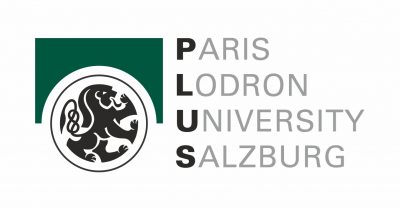 |
Carleton University is a comprehensive higher education institution located in Ottawa, Canada’s capital city. Established in 1952, the university currently has an enrollment of more than 27,000 undergraduate students and more than 4,000 graduate students. Carleton University offers a broad range of undergraduate and graduate degree programs, with particular strength in public and international affairs, as well as in other areas such as engineering and computer studies. Carleton University is recognized within Canada and beyond for its research excellence in the field of EU Studies.
The university houses a research centre focusing on EU Studies, the Centre for European Studies (CES), which hold the internal designation as a Carleton University Research Centre (CURC) and has received external funding from Canadian and European sources, including the Social Sciences and Humanities Research Council of Canada (SSHRC), the European Commission’s EU Centres of Excellence (EUCE) Programme, and the Erasmus+ Programme. |
|
|
|
|
 |
The University of Antwerp (UAntwerp) is a young, internationally-oriented research university in the second city of Belgium. It boasts a student body of over 20.000 – of which 4,000 are international students and 2,000 are PhD students – and 4,000 academic staff. It offers nearly 150 Bachelor and Master degrees, summer schools and executive programmes in the humanities, social sciences, life sciences, engineering and medicine.
UAntwerp is active in regional, national and EU level private and public funded programmes (including ERC, Horizon 2020, and Erasmus+) and is involved in various international networks (including AURORA, YERUN, and YUFE). Next to excellence in teaching and research, its mission includes service to society, inviting its staff to engage in active dialogue and exchanges with policy-makers, civil society, and the public at large. The Department has recently hosted, and currently hosts several Horizon 2020 research projects, two European Research Council grants, an Innovative Training Network, a Jean Monnet Centre of Excellence, and a Jean Monnet Chair |
|
|
 |
Bates College is a highly selective liberal arts college located in Lewiston, Maine, United States. Established in 1855, it enrolls 2,000 undergraduate students from across the United States and the world. Consistently ranked in the top 25 liberal arts colleges in the country, it offers 36 majors and 25 minors across the social sciences, humanities, sciences, and numerous interdisciplinary programs – leading to either Bachelors of Arts or Bachelors of Science.
Over the years, Bates College has hosted a Europe-focused conference on campus with invited faculty from Colby College and Bowdoin College – two Maine liberal arts colleges also in the top 25 in the United States. Faculty regularly present work on the European Union, political economy, and related matters. |
|
|
 |
Paris Lodron University of Salzburg (PLUS) is a modern, vibrant institution whose faculties meet the highest standards of teaching and research. Located in Austria, the university consists of four faculties, with more than 18,000 students and 2,800 employees. PLUS is a centre for innovative research integrated into the cultural and economic life of Salzburg, serving as a meeting place for teaching staff, students and academics, as well as the wider public.
With its national and international networking, it is a modern knowledge hub in the heart of Europe. The PLUS Department of Political Science and Sociology offers excellence at the highest level in the areas of research, modern research methodology, and teaching, as attested by significant success in attracting national and international grants and a strong record of publications in ranked journals. The department works in close partnership with the Salzburg Centre of European Union Studies (SCEUS) in which many of the division’s faculty members are active as researchers and teachers. |
|
|
 |
The University of Warwick is a British campus university located on the outskirts of Coventry and is regarded as one of the country’s leading institutions. The university was established in 1965 and currently has more than 18,000 students enrolled from 120 countries and, despite its relatively young age, is one of the 24 elite Russell Group research universities.The Political Studies Association recently included Politics and International Studies (PAIS) at Warwick among the UK’s ‘big five’ politics departments after analysing the 2014 Research Excellence Framework (REF) results.
PAIS is pluralist in nature, made up of four distinct research clusters: Comparative Politics, Political Theory, International Political Economy, and International Relations and Security. This broad subject coverage, combined with rigorous scholarly enquiry and engagement with stakeholders outside the academy, allows PAIS to be a powerful generator of internationally competitive research funding, with grants, inter alia, drawn from the ERC, H2020, Marie Sklodowska-Curie Actions, ESRC, AHRC, British Academy, Leverhulme Trust, and American foundations such as the Ford Foundation and Spencer Foundation. |
|
|

